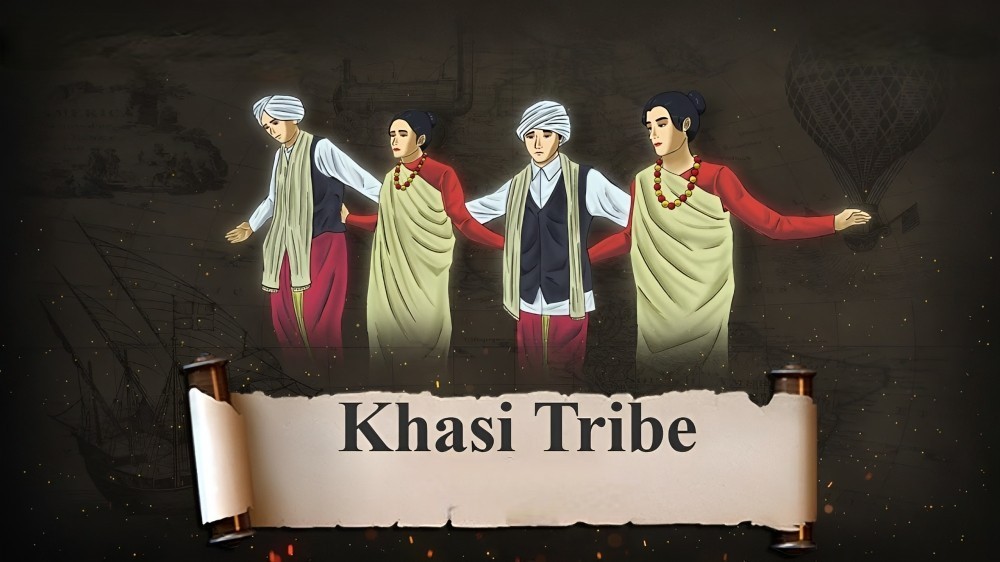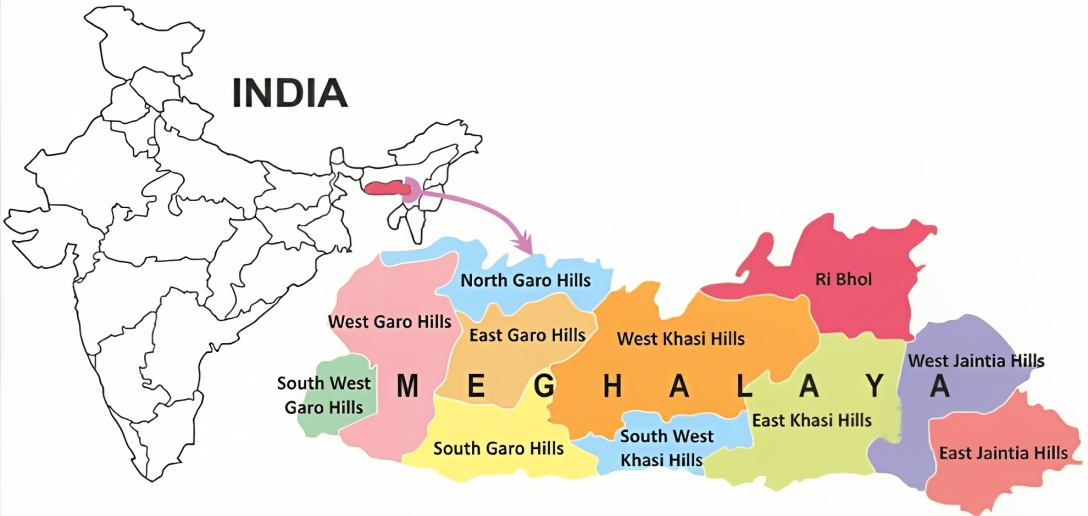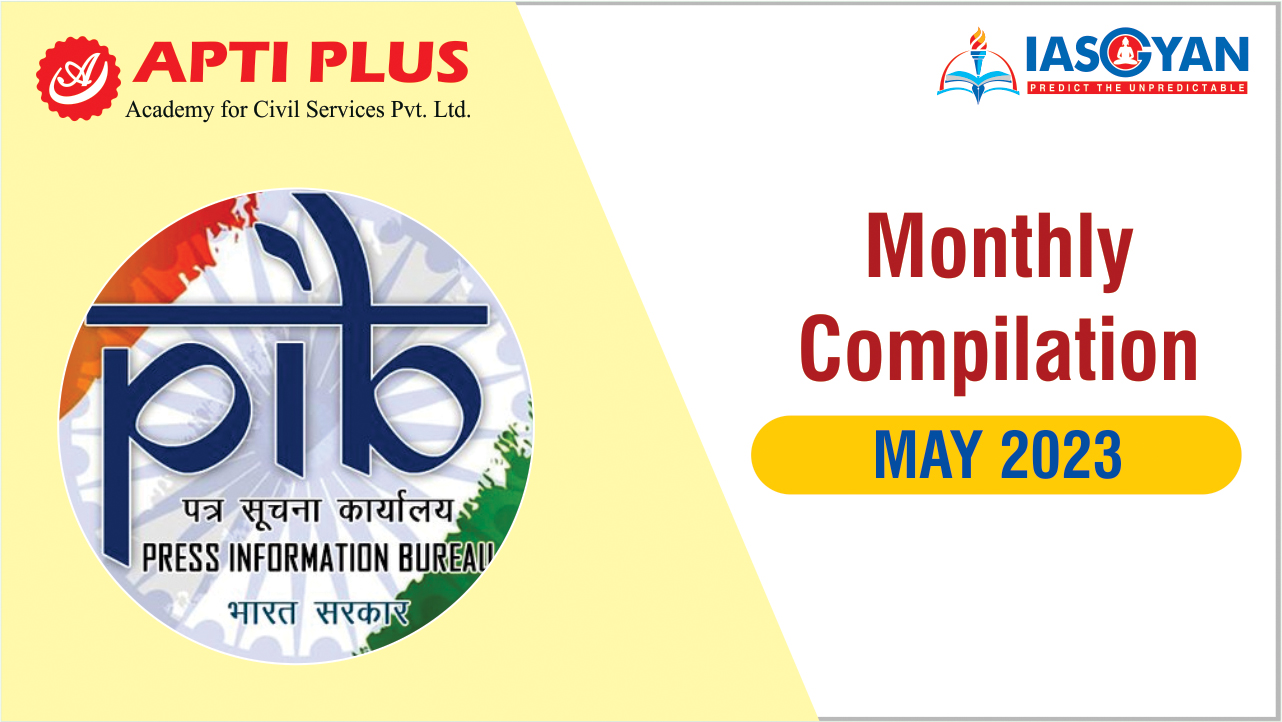Description

Copyright infringement not intended
Context: A tribal council's decision not to grant a Scheduled Tribe (ST) certificate to any Khasi person who takes her or his father's surname has sparked an open war in matrilineal Meghalaya.
Khasi Tribe
About
- The Khasi tribe is one of the indigenous groups of people living in the northeastern region of India, mainly in
- They have a rich and diverse culture, history and language that make them unique among other tribes in India.
- They are also one of the few remaining matrilineal societies in the world, where women inherit property and children take their mother's surname.
- The Khasi tribe has a rich and diverse culture, with a strong connection to nature and their ancestral land.

Origin
- The Khasi tribe traces its origin to a mythical ancestor named Ki Hynniew Trep, who was believed to be the first human being created by God.
- According to their oral tradition, Ki Hynniew Trep and his seven sons migrated from a place called Khynriam Ka Briew Ka Bneng, which means the Golden Vine Bridge in Heaven, to settle in different parts of the Khasi Hills.
- The seven sons became the ancestors of the seven clans of the Khasi tribe: Khynriam, Pnar, Bhoi, War, Maram, Lyngngam and Diko.
Social Structure
- The Khasi tribe has a distinctive social structure that is based on matrilineality and matrilocality. This means that the lineage and inheritance are traced through the mother's side and the husband moves to live with his wife's family after marriage.
- The youngest daughter of the family inherits ancestral property and is responsible for taking care of her parents and siblings.
- The clan name is also passed on from the mother to the children.
- The Khasi tribe respects both men and women equally and gives them equal rights and opportunities in education, politics and the economy.
Language
- The Khasi tribe speaks a language called Khasi, which belongs to the Austroasiatic language family. It is one of the few languages in India that has its script, called Ka Seng Khasi or the Khasi Alphabet.
- The script was developed by a Khasi scholar named U Blei U Hynniew Trep in the 19th century.
- The Khasi language has many dialects that vary from region to regions, such as Sohra, Mawphlang, Nongstoin, Shillong and Jaintia.

Religion
- The Khasi tribe follows a religion called Niam Khasi or Niam Tre, which means the Original or Ancient Religion. It is a form of animism that worships nature and its elements as manifestations of God.
- The Khasis believe that everything in nature has a spirit or a soul that needs to be respected and appeased.
- They also believe in the concept of ka lawbei or ka iashisha, which means fate or destiny that is determined by God.
- The Khasis perform various rituals and ceremonies to honour their ancestors, celebrate festivals and seek blessings from God.
- Some of the important festivals of the Khasi tribe are;
- Shad Suk Mynsiem, which means Dance of the Joyful Heart
- Shad Nongkrem, which means Dance of Thanksgiving
- Shad Beh Sier, which means Dance of Offering
Challenges
Loss of identity and culture
- The Khasi tribe is under pressure from various external forces, such as globalization, urbanization, migration, education and media, that threaten to erode their unique traditions and values.
- Many young Khasis are influenced by mainstream Indian culture and aspire to adopt a different lifestyle and identity.
- Some Khasis have also converted to other religions, such as Christianity, Hinduism or Islam, which may conflict with their indigenous beliefs and practices.
Land alienation and environmental degradation
- The Khasi tribe depends on their land for their livelihood and sustenance. However, their land rights are often insecure and violated by outsiders, such as the state government, private companies, settlers and tourists.
- The Khasi tribe has witnessed the encroachment and exploitation of their natural resources, such as forests, water sources, minerals and biodiversity, by various developmental projects, such as dams, mines, roads and industries.
- These projects have caused environmental damage and pollution, affecting the health and well-being of the Khasi people.
Gender inequality and violence
- Despite being a matrilineal society, the Khasi tribe is not free from gender discrimination and violence.
- Women still face many challenges in accessing education, health care, employment and political representation. They also face domestic violence, sexual harassment and trafficking.
- Men also suffer from gender stereotypes and expectations that limit their roles and choices. Some men feel marginalized and resentful of women's authority and power in the family and society.
Poverty and underdevelopment
- The Khasi tribe is one of the most backward and marginalized communities in India.
- They lack basic amenities and infrastructure, such as roads, electricity, water supply, sanitation and health facilities.
- They also face low literacy rates, high dropout rates, unemployment and underemployment.
- They have limited access to markets, credit, technology and information.
- They are often exploited by middlemen and traders who pay them low prices for their products and charge them high-interest rates for loans.

Way Forward
Preserve and promote their identity and culture
- The Khasi tribe should take pride in their heritage and history and pass it on to the next generations.
- They should also document and disseminate their knowledge, skills, arts and crafts to the wider world.
- They should resist any attempts to assimilate or homogenize them into the dominant culture.
- They should also respect and accommodate the diversity within their community.
Protect and manage their land and environment
- The Khasi tribe should assert their rights over their land and resources and resist any encroachment or exploitation by outsiders.
- They should also adopt sustainable practices to conserve and restore their environment.
- They should use traditional methods of farming, forestry, fishing and hunting that are compatible with nature.
- They should also seek alternative sources of income that do not harm their environment.
Empower women and men equally
- The Khasi tribe should recognize the value and contribution of both women and men in their society.
- They should ensure equal opportunities and rights for both genders in education, health care, employment and politics.
- They should also prevent and address any form of gender-based violence or discrimination.
- They should also encourage men to participate more in domestic work and child care.
Improve their socioeconomic Status
- The Khasi tribe should strive to improve their living standards and quality of life.
- They should demand better amenities and infrastructure from the government and other agencies.
- They should also seek more education, training, employment and entrepreneurship opportunities for themselves.
- They should also form cooperatives, self-help groups or associations to enhance their collective bargaining power and voice.
Must Read Articles:
Khasi Autonomous District Council: https://www.iasgyan.in/daily-current-affairs/khasi-autonomous-district-council
|
PRACTICE QUESTION
Q. Which of the following statements about the Khasi tribe is Incorrect?
A) The Khasi tribe is one of the last existing matrilineal societies in the world.
B) The Khasi tribe is related to the Mon-Khmer people of Southeast Asia.
C) The Khasi tribe has seven divine clans that trace their origin to a heavenly ladder.
D) The Khasi tribe practices a form of Hinduism that worships the Sun god.
Answer: D
Explanation: The Khasi tribe is predominantly Christian, with a minority following their indigenous religion called Ka Niam Khasi. They do not worship the Sun god, but rather a supreme deity called U Blei Trai Kynrad (God, the Lord Master).
|

https://www.thehindu.com/news/national/other-states/row-over-adopting-fathers-surname-in-matrilineal-meghalaya/article66856681.ece












